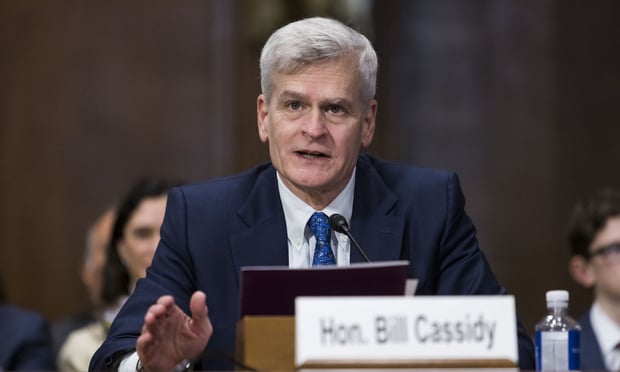Congressman Richard Neal, D-Mass., is trying to push a bill that would give small employers a tax credit for setting up automatic individual retirement accounts for participants who don't have access to other savings vehicles at work.
Similar legislation was introduced in 2010 by Sen. Jeff Bingaman, D-N.M, and we saw President Obama tout the idea in his "Supporting Middle Class Families" program.
This time around, Neal hopes that by showing how much workers are committed to saving for their retirement through IRAs, it will inspire employers to then adopt a 401(k), which has a higher contribution limit ($17,000 versus $5,000 for an IRA if you are under age 50), and is leveraged by an employer contribution.
Recommended For You
Under Neal's bill, employers won't have to contribute to the account and they don't have a fiduciary obligation. Employers would also get an extension on credit for small employer pension plan startup costs from two years to three years. [See video for Neal's introduction of the plan]
The Brookings Institution supported the notion a few years ago, saying "Automatic IRAs would be carefully designed to avoid competing with or crowding out employer-based retirement plans and employer contributions for employees. In fact, for several reasons, extensive use of automatic IRAs can be expected to expand opportunities to market 401(k), SIMPLE, and other tax-favored plans to employers."
Whether they like it or not, lawmakers have to admit there's no resource more adequate – or available – for retirement saving than the employer-sponsored plan. And they'll just have to overlook the $120 billion in "tax expenditures" associated with them. The Hobson's choice of employee benefits, retirement plans offered at work are practically the only means of financial security. ASPPA, an advocate for the employer-based retirement system cites data from EBRI that "more than 70 percent of moderate-income earners with access to employer-sponsored plans participate in those plans, while less than 5 percent without employer-sponsored accounts contribute on their own to an IRA."
Last week, Congress did admit it…sort of. Both chambers came to a formal agreement – without passing any law- that employer-sponsored retirement plans are vital to financial security, and that tax incentives, specifically, "should play an important role in any reformed tax code," according to the "Sense of the Congress" that was filed.
Incentive levels between IRAs and 401(k)s aren't exactly on a level playing field. But if you lead a horse to water, will it go for the 401(k)?
"Widespread use of payroll deposit to contribute to IRAs would lay the groundwork for a far deeper penetration of the small business market by 401(k) and SIMPLE plans," the Brookings Institution argues. "Either at the outset or after a year or two, many small business owners will ask how they or a key manager can save more for themselves than only $5,000 a year."
© Touchpoint Markets, All Rights Reserved. Request academic re-use from www.copyright.com. All other uses, submit a request to [email protected]. For more inforrmation visit Asset & Logo Licensing.






